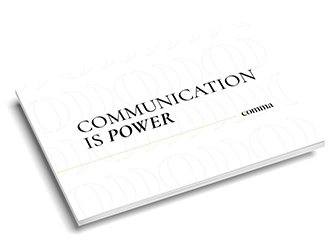The phrase of the great master Michelangelo “one paints with the brain, not with the hands” is the best definition of copyright that can be found, being protections of works of the human mind that express a very close connection with their creator; and what more connection can one expect than a creation of the brain?
Well, this conception of copyright is being challenged by what is considered the most important technological revolution to date: Artificial Intelligence (AI). It is known by all (or almost all) that through this science, computer programmes are created that perform actions that emulate or are similar to those performed by the human mind, such as learning, reasoning or the much debated creation of works;
Today, we are immersed in a different form of creation from the traditional one, with commercial music and AI inventions, and this is something that is transforming the concepts of ‘composer’, ‘author’ and ‘inventor’, but what about that of journalist?
In the world of communication and journalism, we find AI systems that can not only help the efficiency of the sector, but can even be seen as ‘supplanting the journalist’.. Thus we find QUILL.ai an AI system that writes reports autonomously; It is currently being used in the publication of sports reports and no reader has been able to identify that the reports were not made by a human; Also the GPT-3 system, a word processor model, which allows for the generation of written language; Thanks to this algorithm, the user only has to start writing one paragraph and the system completes the rest as coherently as possible;
This automation of information is already happening in newsrooms around the world., generating what has come to be known as the“computer journalism”. However, within it, media professionals also need significant legal protection for their moral intellectual property rights, including the right to have authorship of their works acknowledged.
For copyright, artificial intelligence is a direct attack on some of the traditional foundations on which it is basedand leaves us today with more open questions than answers.
Unsurprisingly, the emergence of the artificial intelligence has had an impact on the key concepts of protection of human rights.intellectual property, leaving the theory of copyright protection, which is centred on human creation, in need of being rethought.
Thus, we find that the mediate end is protected, the creation’s heritage and its author to continue creating, without contemplating the possibility of an authorship different from the human one; But in itself, the concept of authorship has ceased to be that creation of the nineteenth century that was exclusive and limited; today we find different forms of creation that have changed the concept of thesuch as blogs and other social media content;
Nos guste o no,in the coming years we are going to have to rethink the pillars on which intellectual property has been built in recent times. It is unquestionable that machines create works with elements that in some way have a creative content, but currently and under current legislation, they are not eligible for copyright protection.
The main problem lies in authorship and whether a machine can be attributed authorship.. In this sense, given the current legislative situation, in order to proceed to attribute copyright to a machine, a considerable legislative change should be made, and it is not enough for case law to develop criteria that attempt to modify this reality; Change must happen fast as technology evolves at a dizzying pace; Moreover, it must be done in a harmonised way, as the lack of harmonisation could lead to divergent national solutions;






